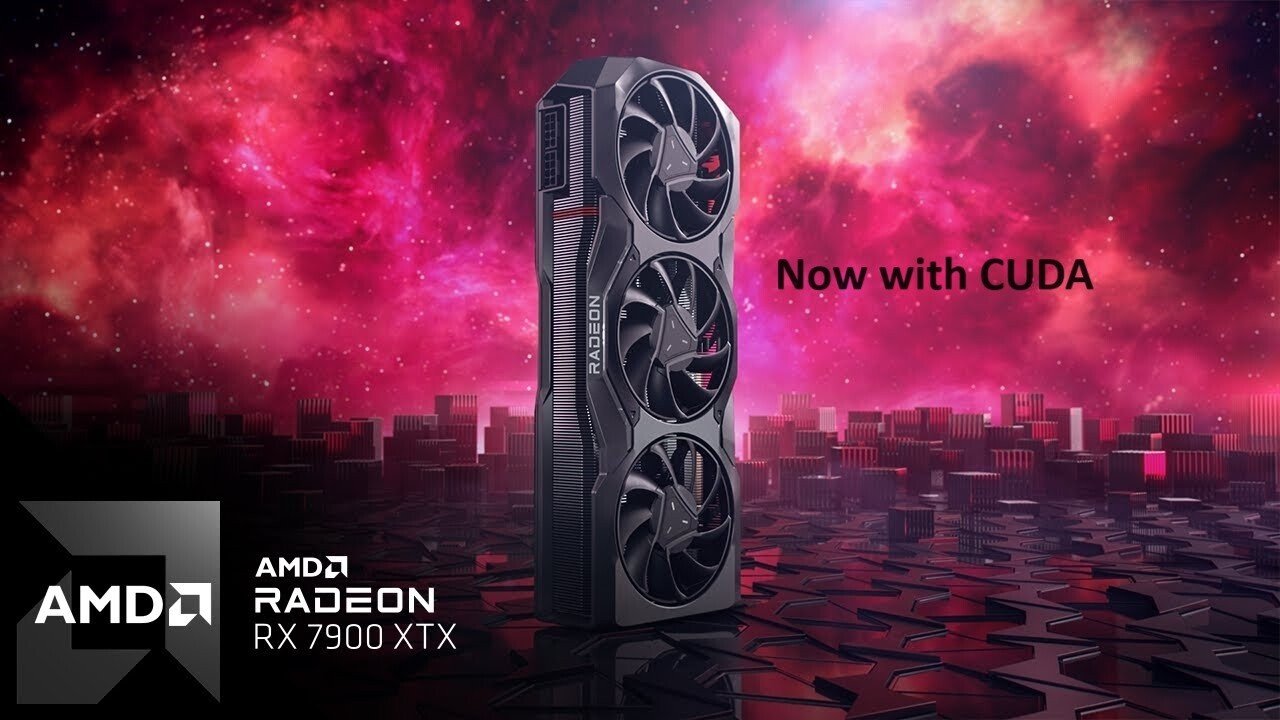AMD’s ROCm platform has long aimed to provide an alternative to NVIDIA’s CUDA for GPU programming, especially for high-performance computing (HPC) and machine learning (ML). However, a significant hurdle remained: the vast ecosystem of existing CUDA-based software. This hurdle has been partially addressed with the revelation of zLUDA, a project funded by AMD and now open-source, aiming to bridge the gap.
Key Highlights:
- AMD quietly funded a project creating a drop-in CUDA implementation for ROCm, enabling NVIDIA CUDA applications to run on AMD GPUs without source code changes.
- The project, named “zLUDA,” is now open-source, fostering community contribution and development.
- This development potentially expands the reach of AMD GPUs for various applications, particularly those heavily reliant on CUDA-based software.
- Performance and compatibility remain under evaluation, with potential limitations and optimizations to be addressed.
zLUDA acts as a binary translator, intercepting CUDA code and translating it into instructions compatible with AMD’s ROCm platform. This allows developers to run existing CUDA applications on AMD GPUs without modifying their source code, potentially saving time and effort. While not a complete solution, it opens doors for wider adoption of AMD GPUs in areas heavily reliant on CUDA, such as scientific computing, deep learning, and financial modeling.
- Scientific Computing: Applications leveraging libraries like cuBLAS, cuFFT, and cuDNN for linear algebra, fast Fourier transforms, and deep neural networks can potentially be ported to AMD GPUs with zLUDA.
- Deep Learning: Frameworks like TensorFlow and PyTorch often utilize CUDA for GPU acceleration. zLUDA could enable seamless execution of these deep learning models on AMD hardware.
- Financial Modeling: Quantitative finance applications that rely on CUDA-accelerated libraries for complex calculations can potentially benefit from zLUDA’s compatibility layer.
The open-sourcing of zLUDA marks a crucial step. Community involvement can:
- Accelerate development: More developers can contribute to improving compatibility, adding features, and optimizing performance.
- Enhance compatibility: A wider range of CUDA applications can be tested and supported, leading to broader usability.
- Address performance limitations: Community efforts can help identify and address potential performance bottlenecks, leading to more efficient execution on AMD GPUs.
The open-sourcing of zLUDA marks a significant step. Community involvement can accelerate development, improve compatibility, and potentially address performance limitations. However, it’s important to note that zLUDA is still under development. Performance and compatibility may vary depending on the application, and certain functionalities might not be fully supported. Additionally, optimizations specific to AMD hardware could be missing, potentially impacting performance compared to native CUDA execution on NVIDIA GPUs.
Despite these limitations, zLUDA represents a positive development for the GPU ecosystem. It fosters competition, potentially leading to better software and hardware for developers and users alike. Additionally, it empowers developers to choose the best hardware for their needs without being restricted by software compatibility limitations.
In summary, AMD’s funding of zLUDA and its subsequent open-sourcing represent a significant step towards bridging the gap between CUDA and ROCm. While challenges remain, this development has the potential to expand the reach of AMD GPUs and foster a more competitive and innovative GPU landscape.



















